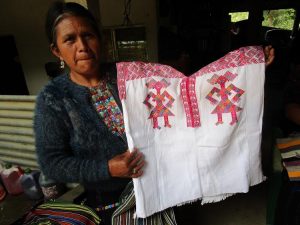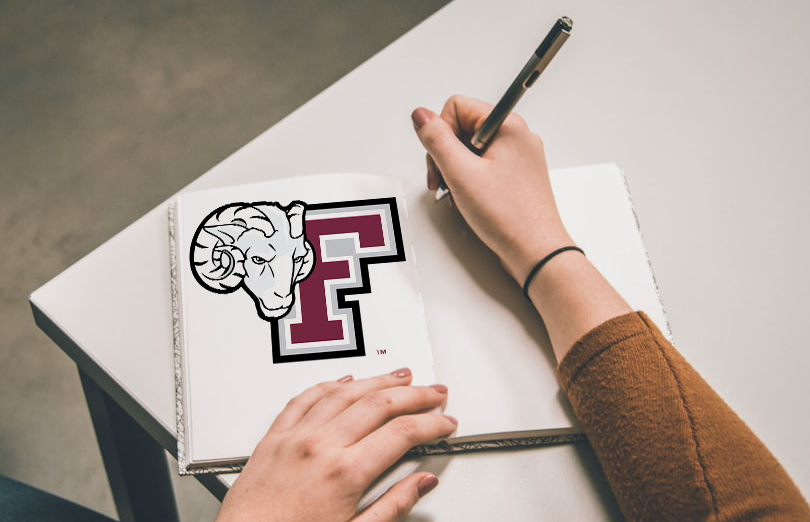By Tereza Shkurtaj

Rosalyn Kutsch, FCRH ’19, a student in Fordham University’s Honors Program, is using her very first research grant to explore her growing interests in International Political Economy and Latin American studies and uncover the impact of foreign social enterprises on female Mayan artisans in the Lake Atitlán region of Guatemala.
Kutsch applied for a Fordham research grant in the spring of 2017 in order to supplement her experience as a summer intern with a non-governmental organization (NGO) in Panajachel, Guatemala.
“It was really cool that Fordham had the confidence in me to be like, ‘Here’s the money, go see what you can do!’ and for that I am really grateful,” said Kutsch.
She turned to the support of faculty members Eve Keller, director of the Honors Program, Barbara Mundy and Rachel Annunziato, associate dean for strategic initiatives at FCRH, to better hone her interests and determine the focus of the research project. She said it was easy for her to venture out and to build on topics learned within the classroom because of Fordham’s many opportunities to pursue individual interests.
Kutsch worked closely with two of the social enterprises, the names of which Kutsch said she cannot disclose at this time. These organizations located in Guatemala strive to use profits to maximize social well-being, in hopes of studying the dynamic between the organizations and the female Mayan artisans of the region.
With the help of a local translator, Kutsch interviewed the indigenous artisan women using a demographic survey, then compared the data collected between the two companies and multiple indigenous communities. She said she wanted to figure out if working with these companies was truly beneficial for the Lake Atitlán region of Guatemala.
“I just wanted to see if they were doing what they say they do, which is supporting these indigenous artisans in a way that increases their standard of living,” said Kutsch.
The first company she worked with is fairly new and has around four times more revenue than other companies due to its strategic marketing tactics. Its goal is to reach female consumers who are socially conscious and want to be aware of harmful global sourcing practices. The company has partnered with around 190 women and intends on increasing that number to almost a thousand, yet from her study, Kutsch discovered that only eight percent of women have worked with the company since its founding and the attrition rate of artisan partners is low.
The second company she shadowed, founded in the 90s, works with around 60 artisan women. Although as a company it did not have an equally aggressive marketing strategy and was very often reliant on donors, it was much more deliberate about building strong relationships with its artisan partners, which is why 51 percent of women have worked continually with the organization since its founding 26 years ago.
Due to the existing discrimination against indigenous people in the area and growing health and education concerns, Kutsch said she believes that these companies help create access for local artisans.
“These companies are important because they allow these indigenous artisans to have access to the international market, something that due to language and cultural barriers is not feasible,” she said.
Companies in the area, such as the two she worked with, help produce products which can be sold to the United States and Europe for profit, since tourism alone does not bring enough revenue to help these women and their families prosper, according to Kutsch.
These companies and their efforts to use the standard business model to address the lack of education and health problems in highland Guatemala are evidence of the positive benefits of globalization, according to Kutsch.
She said she hopes buyers become more concerned with what they are buying and where it is coming from.
“With this project I realized how much of an impact a sale can have on the well-being of just one person…there truly is a face behind every product,” said Kutsch.
Kutsch will be presenting her research at the National Conference of Undergraduate Research this April. She urges students to get involved, as she did, and to pursue their interests, whether it be by traveling, through research or even a combination of both.
“Taking one step towards pursuing an interest, even if you are not sure of the final outcome, is a defining moment in the self-discovery journey that is the undergraduate experience,” said Kutsch. “It challenges you and opens you up to new experiences that shape your future.”












































































































































































































